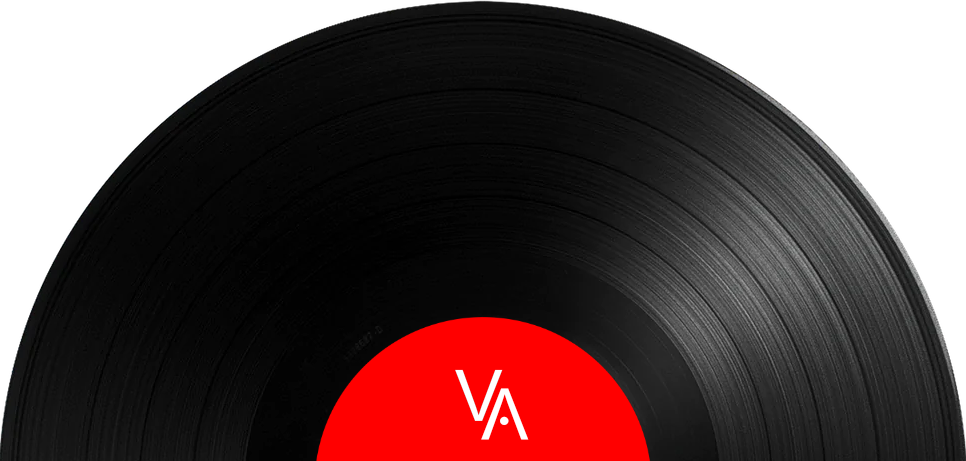I recently played this album front to back. The treatment Mobile Fidelity gave it is excellent, but musically it's too spliced together for me. Too many “look mom, no hands” show-offy things going on, like the band listened to Sgt Pepper before they entered the studio and decided to try and emulate it. I liked it when it came out but I think I’ve outgrown it and I was never a fan of Bohemian Rhapsody at all.
This record certainly was different from anything else out there at the time of its release - maybe even still - and it stomped all over the cheesy disco sounds that were spewing out of the radio. Opera and rock? Who’da thunk it was possible? But it’s not really my thing.
This record pointed in the direction a lot of other bands opted to go in subsequent years – and without it, who knows? – but I think Queen got better musically later on, and more confident too, and those records – to my ears, anyway – sound better.
I saw Queen, back in the late-70s, and it was a good show. But they had to use tapes to replicate their music live, which is something I was never particularly fond of. I really like to see a band play live without having to resort to tapes, even - especially - if it changes things up a bit.
The copy in my collection is a Mobile Fidelity Sound Labs promotional copy, which increases its trade-in value. So I decided to capitalize on that. I traded it for all three Tom Waits 2018 Record Store Day Orphans records (Bawlers, Brawlers and Bastards), an Oscar Peterson suit dedicated to the Stratford Festival and the Thievery Corporation’s Treasures From The Temple. I can always get a remastered copy of Opera if I feel I need to own it again, but I don't think I will.
A Night at the Opera is Queen's fourth studio album, released in November, 1975. It was said to be the most expensive album ever recorded up to that time, and its title is borrowed from the Marx Brothers film of the same name. It took four months to record.
Upon release it topped the UK Albums Chart and peaked at number four on the US Billboard 200. It was Queen's first platinum album in the US and would go on to sell more than six million copies. It also produced the band's most successful hit single in Bohemian Rhapsody, despite the songs unusual non-AM radio friendly length.
Queen's previous album, Sheer Heart Attack - more to my liking - was their first commercial success and delivered mainstream attention to the band. The single Killer Queen reached number two on the UK Singles Chart, as well as providing the band with their first top 20 hit in the United States. Personally, I like it a lot more than Bohemian Rhapsody. Opera was an effort to top that record that made them stars - a feat not easily accomplished by a lot of bands - and in that respect Queen was successful. The album was a breakout smash that sent the band into the stratosphere of superstardom.
Despite their success the band was broke, largely due to the management contract they had signed at the outset of their career. As a result Queen saw almost none of the money they earned, other than the reported £60 weekly wage each band member received. It is said their finances were in such a poor state that Roger Taylor was asked not to hit his drums too hard as they were unable to afford new drumsticks. Not sure how true that is, though.
In December, 1974, Queen hired a lawyer and began negotiating their way out of that deal. They were able to eventually wriggle out of it and regain control of their back catalogue, but they had to pay their ex-production company, Trident, £100,000 and promise to fork over one per cent of the royalties they would earn on their next six albums.
Opera was recorded at seven different studios after a three week writing and rehearsing session in a rented house near Kingston, Herefordshire. Unlike Queen's earlier albums, which had used 16-track tapes, it was recorded using 24-track tapes that allowed for multiple layers of music to be laid on top of each other, probably most notable in Bohemian Rhapsody. It would become their signature sound.
I recently played this album front to back. The treatment Mobile Fidelity gave it is excellent, but musically it's too spliced together for me. Too many “look mom, no hands” show-offy things going on, like the band listened to Sgt Pepper before they entered the studio and decided to try and emulate it. I liked it when it came out but I think I’ve outgrown it and I was never a fan of Bohemian Rhapsody at all.
This record certainly was different from anything else out there at the time of its release - maybe even still - and it stomped all over the cheesy disco sounds that were spewing out of the radio. Opera and rock? Who’da thunk it was possible? But it’s not really my thing.
This record pointed in the direction a lot of other bands opted to go in subsequent years – and without it, who knows? – but I think Queen got better musically later on, and more confident too, and those records – to my ears, anyway – sound better.
I saw Queen, back in the late-70s, and it was a good show. But they had to use tapes to replicate their music live, which is something I was never particularly fond of. I really like to see a band play live without having to resort to tapes, even - especially - if it changes things up a bit.
The copy in my collection is a Mobile Fidelity Sound Labs promotional copy, which increases its trade-in value. So I decided to capitalize on that. I traded it for all three Tom Waits 2018 Record Store Day Orphans records (Bawlers, Brawlers and Bastards), an Oscar Peterson suit dedicated to the Stratford Festival and the Thievery Corporation’s Treasures From The Temple. I can always get a remastered copy of Opera if I feel I need to own it again, but I don't think I will.
A Night at the Opera is Queen's fourth studio album, released in November, 1975. It was said to be the most expensive album ever recorded up to that time, and its title is borrowed from the Marx Brothers film of the same name. It took four months to record.
Upon release it topped the UK Albums Chart and peaked at number four on the US Billboard 200. It was Queen's first platinum album in the US and would go on to sell more than six million copies. It also produced the band's most successful hit single in Bohemian Rhapsody, despite the songs unusual non-AM radio friendly length.
Queen's previous album, Sheer Heart Attack - more to my liking - was their first commercial success and delivered mainstream attention to the band. The single Killer Queen reached number two on the UK Singles Chart, as well as providing the band with their first top 20 hit in the United States. Personally, I like it a lot more than Bohemian Rhapsody. Opera was an effort to top that record that made them stars - a feat not easily accomplished by a lot of bands - and in that respect Queen was successful. The album was a breakout smash that sent the band into the stratosphere of superstardom.
Despite their success the band was broke, largely due to the management contract they had signed at the outset of their career. As a result Queen saw almost none of the money they earned, other than the reported £60 weekly wage each band member received. It is said their finances were in such a poor state that Roger Taylor was asked not to hit his drums too hard as they were unable to afford new drumsticks. Not sure how true that is, though.
In December, 1974, Queen hired a lawyer and began negotiating their way out of that deal. They were able to eventually wriggle out of it and regain control of their back catalogue, but they had to pay their ex-production company, Trident, £100,000 and promise to fork over one per cent of the royalties they would earn on their next six albums.
Opera was recorded at seven different studios after a three week writing and rehearsing session in a rented house near Kingston, Herefordshire. Unlike Queen's earlier albums, which had used 16-track tapes, it was recorded using 24-track tapes that allowed for multiple layers of music to be laid on top of each other, probably most notable in Bohemian Rhapsody. It would become their signature sound.



